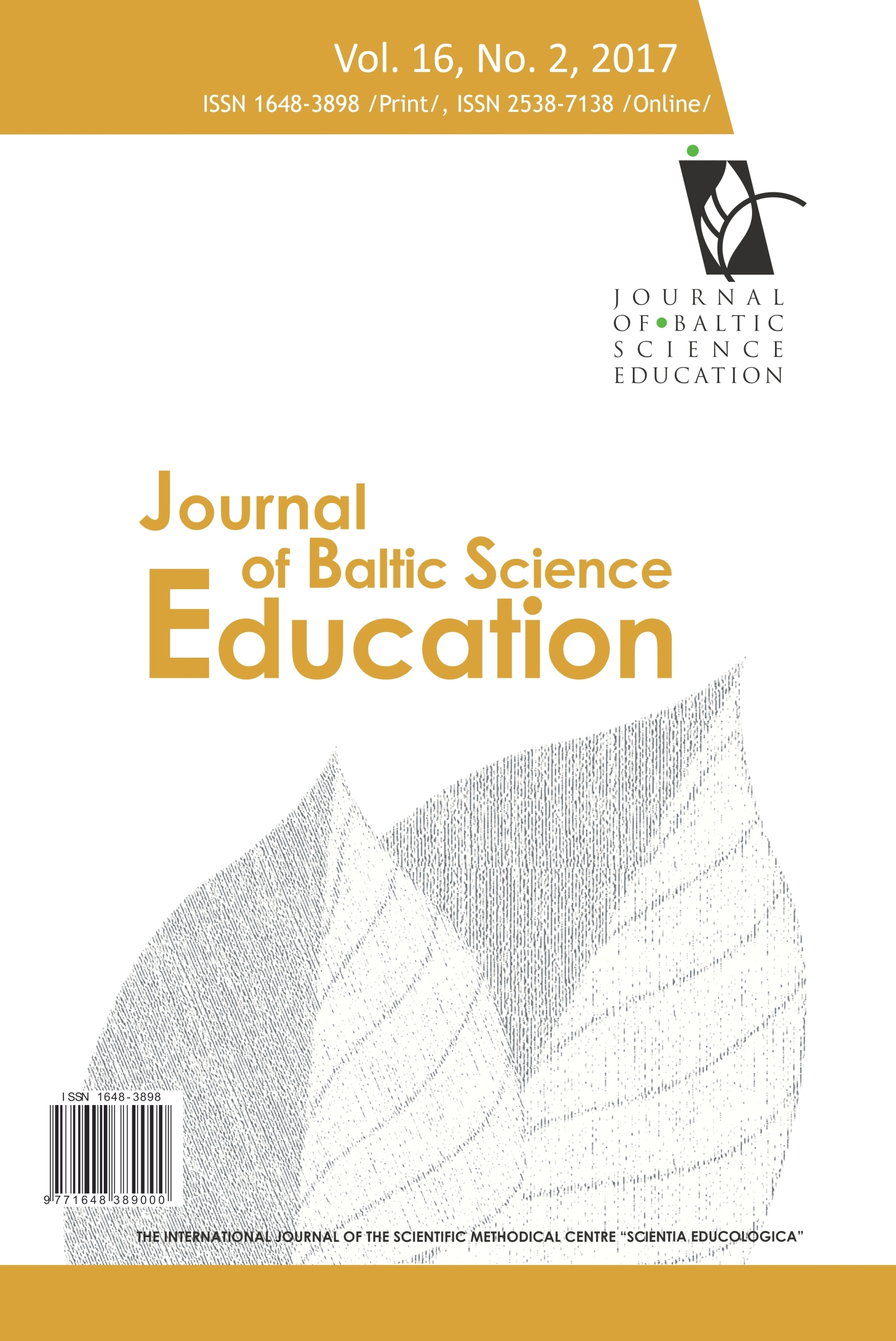CLOSING THE SCIENCE PROCESS SKILLS GAP BETWEEN STUDENTS WITH HIGH AND LOW LEVEL ACADEMIC ACHIEVEMENT
CLOSING THE SCIENCE PROCESS SKILLS GAP BETWEEN STUDENTS WITH HIGH AND LOW LEVEL ACADEMIC ACHIEVEMENT
Author(s): Baskoro Adi Prayitno, Aloysius Duran Corebima, Herawati Susilo, Siti Zubaidah, Murni RamliSubject(s): Education, School education
Published by: Scientia Socialis, UAB
Keywords: inquiry-based learning; INSTAD; STAD; science process skills;
Summary/Abstract: Science Process Skills (SPSs) are fundamental skills to mastering science. To nurture students' SPS, inquiry based learning and student-center activities may work effectively. This study aims at analyzing: How Inquiry-based Learning and Student Team Achievement Division (INSTAD) affects science process skills compared with inquiry-based learning, Student Teams Achievement Divisions (STAD), and conventional learning method. The participants were 136 grade 7 students from 27 public middle schools in Surakarta, Indonesia. They were divided into 68 students with higher academic (HA) achievement and 68 students with lower academic (LA) achievement. A nonequivalent control group design with pretest and posttest were applied to get data on SPSs using a sort of essay test. The result indicates that: (1) While the outcomes of INSTAD and inquiry-based learning are comparable, they are significantly different compared with the outcomes of STAD and conventional learning. (2) Students in HA group have higher SPS than students in LA groups. (3) INSTAD, on an equal level with inquiry-based learning, significantly increases the students’ SPSs. Compared with other three methods, INSTAD was confirmed the most effective in closing the science process skills gaps between students in HA group and LA group.
Journal: Journal of Baltic Science Education
- Issue Year: 16/2017
- Issue No: 2
- Page Range: 266-277
- Page Count: 12
- Language: English

